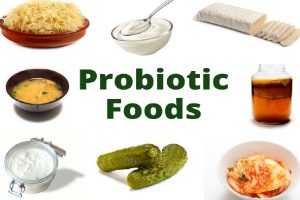
The gut, often referred to as the “second brain,” is a critical player in our overall well-being. To keep this complex ecosystem in harmony, we must pay attention to the yin and yang of gut health—prebiotics and probiotics. In this article, we will explore how balancing the consumption of these essential dietary elements can optimize digestive and immune function for a healthier, happier you.
The Gut Symphony: Prebiotics and Probiotics
Imagine your gut as a symphony orchestra, with prebiotics and probiotics as the lead violinists. Prebiotics, like the gentle hum of the strings, provide nourishment and energy, while probiotics, the conductors, keep the symphony in harmony. To understand the significance of this duet, let’s break down their roles:
- Prebiotics: These non-digestible dietary fibers serve as food for the beneficial bacteria in your gut. They pass through the upper part of the digestive tract undigested and arrive in the colon, where they are fermented by probiotics. Prebiotics play a vital role in promoting microbial diversity and strengthening the gut barrier.
- Probiotics: These live microorganisms, often referred to as “good bacteria,” are essential for maintaining a balanced gut microbiome. They help break down food, absorb nutrients, and even influence the gut-brain connection, impacting mood and overall health.

https://www.inbusinessworld.com/wp-content/uploads/2021/07/probiotics.jpg
The Art of Balancing
Balancing prebiotics and probiotics in your diet is key to maintaining a healthy gut. An imbalance can lead to digestive problems, allergies, and even weakened immunity. Here’s how to achieve equilibrium:
Sources of Prebiotics
1. Garlic: Incorporate minced garlic into your dishes, such as stir-fries and pasta.
2. Onions: Add onions, especially red and yellow varieties, to your salads and sautéed vegetables.
3. Leeks: Experiment with leeks in soups and quiches for a mild, slightly sweet flavor.
4. Asparagus: Roast asparagus as a side dish or add it to salads and omelets.
5. Jerusalem Artichokes: Include these knobby, tuberous vegetables in your meals.
6. Chicory Root: Explore recipes that use chicory root, or consider adding it as a supplement to your diet.
7. Bananas: Snack on slightly unripe bananas for a source of resistant starch.

Sources of Probiotics
1. Yogurt: Enjoy a serving of plain yogurt with live cultures as a snack or part of your breakfast.
2. Kefir: Create kefir-based smoothies for a refreshing and probiotic-rich drink.
3. Sauerkraut: Add sauerkraut to your meals, choosing the unpasteurized variety for live cultures.
4. Kimchi: Experiment with this spicy Korean dish made from fermented vegetables.
5. Miso: Use miso to season your soups and stews for added flavor and probiotic benefits.
6. Fermented Pickles: Snack on fermented pickles as a crunchy and gut-friendly treat.
Achieving Balance
Balancing prebiotics and probiotics involves both variety and moderation:
- Diverse Diet: Consume a variety of prebiotic-rich foods to promote a diverse gut microbiome, which is associated with better health outcomes.
- Moderation: When incorporating probiotic-rich foods, practice moderation, as excessive consumption may lead to digestive discomfort.
- Consult a Professional: If you have specific dietary requirements or health concerns, consult a healthcare professional or registered dietitian to determine the best approach for your unique needs.
Benefits of a Balanced Gut
Balancing prebiotics and probiotics offers a host of benefits:
- Improved Digestion: A well-balanced gut microbiome enhances digestion and the absorption of nutrients.
- Immune System Support: Probiotics bolster the immune system, while prebiotics promote microbial diversity, further strengthening immunity.
- Mood Regulation: A balanced gut microbiome has been linked to improved mood and reduced symptoms of anxiety and depression.

https://www.octopusbooks.co.uk/wp-content/uploads/2019/03/hbg-title-9780857834348-18.jpg?fit=450%2C557 - Reduced Inflammation: Equilibrium in the gut can help reduce inflammation throughout the body, contributing to overall well-being.
- Enhanced Weight Management: Maintaining a balanced gut may aid in weight management and weight loss efforts.
In Conclusion: The Gut’s Harmony
Balancing prebiotics and probiotics is a delicate dance that reaps rewards for your gut and overall well-being. Like the lead violinists in a symphony, they work in tandem to create a harmonious gut microbiome that can lead to better digestion, enhanced immunity, improved mood, and overall health.
As you embrace this synergy in your diet, remember that nurturing your gut is a journey worth taking—one that will leave you feeling happier and healthier from within.










